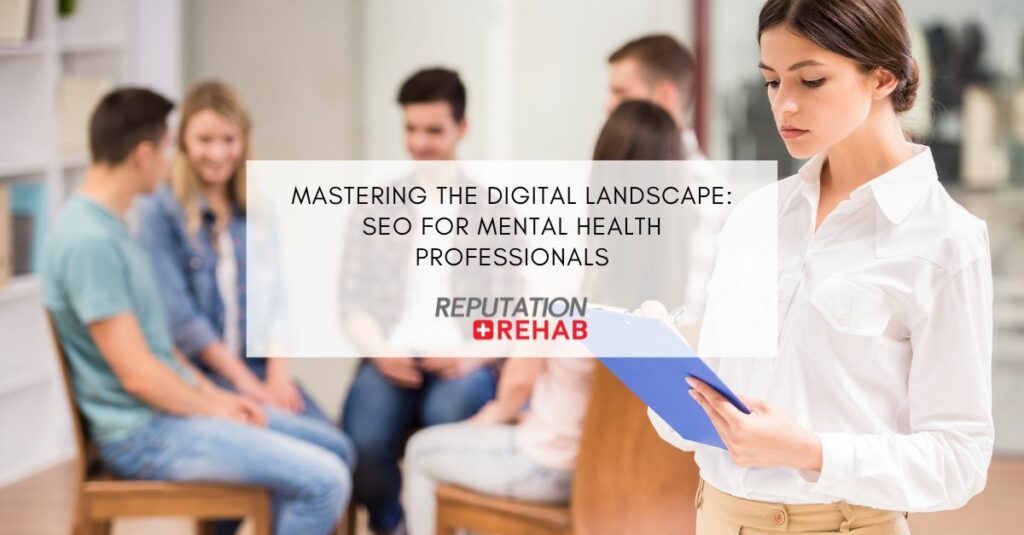Having a strong online presence is crucial. SEO for mental health professionals is one way to accomplish it. This article delves into effective SEO (Search Engine Optimization) strategies that can help mental health professionals enhance their visibility, reach their target audience, and establish their expertise in the digital landscape.
Understanding the Importance of SEO for Mental Health Professionals
SEO plays a pivotal role in driving organic traffic to mental health professionals’ websites and increasing their online visibility. By optimizing their online presence, mental health professionals can connect with individuals seeking their services, improve their search engine rankings, and establish trust and credibility.
Keyword Research and Optimization
Keyword research is the foundation of successful SEO. Identify relevant keywords and phrases that reflect the services you offer and the needs of your target audience. Use keyword research tools to uncover popular search terms, search volume, and competition. Incorporate these keywords strategically into your website’s content, meta tags, headings, and URLs to improve your search engine rankings.
Creating High-Quality and Relevant Content
Content quality is paramount for SEO success. Create informative, engaging, and valuable content that addresses the needs and concerns of your target audience. Develop blog posts, articles, videos, and resources that provide insights, practical tips, and educational materials. By consistently producing high-quality content, you can attract organic traffic, establish your expertise, and build trust with your audience.
Optimizing On-Page SEO Elements
Optimizing on-page SEO elements is essential for better search engine rankings. Ensure your website’s titles, meta descriptions, headings, and image alt tags are optimized with relevant keywords. Optimize your URLs to be. Make use of internal linking to improve navigation and promote content discoverability. Additionally, optimize your website’s loading speed, mobile-friendliness, and site structure for a better user experience.
Building Quality Backlinks
Building high-quality backlinks from reputable websites is an important SEO strategy. Seek opportunities to guest post on relevant blogs, contribute to industry publications, or collaborate with other professionals in the mental health field. Create compelling content that others will naturally want to link to. Backlinks from authoritative sources can improve your website’s credibility and search engine rankings.
Local SEO for Mental Health Professionals
Local SEO is crucial for mental health professionals targeting a specific geographic area. Optimize your website for local search by including your location in key areas such as your website’s titles, headings, content, and contact information. Claim and optimize your Google My Business listing, encouraging positive reviews from satisfied clients. Engage with local directories and community organizations to strengthen your local presence.
User Experience and Mobile Optimization
User experience and mobile optimization are integral to SEO success. Ensure your website is responsive and mobile-friendly, providing a seamless browsing experience across different devices. Optimize your website’s navigation, layout, and usability to enhance user experience. A positive user experience leads to longer visit durations, lower bounce rates, and increased chances of conversion.
Monitoring, Analyzing, and Adjusting
Regularly monitor and analyze your website’s performance using SEO analytics tools. Track keyword rankings, website traffic, conversion rates, and user behavior. Analyze the data to identify areas for improvement and optimization. Make necessary adjustments to your SEO strategies based on the insights gained from the data analysis.
Seo for Mental Health Professionals
By implementing effective strategies, like SEO mental health professionals can master the digital landscape and enhance their online visibility. Keyword research, content creation, on-page optimization, backlink building, local SEO, user experience, and analytics are key elements to focus on. Embrace SEO as a powerful tool to connect with those in need, establish your expertise, and make a positive impact in the lives of individuals seeking mental health services.


